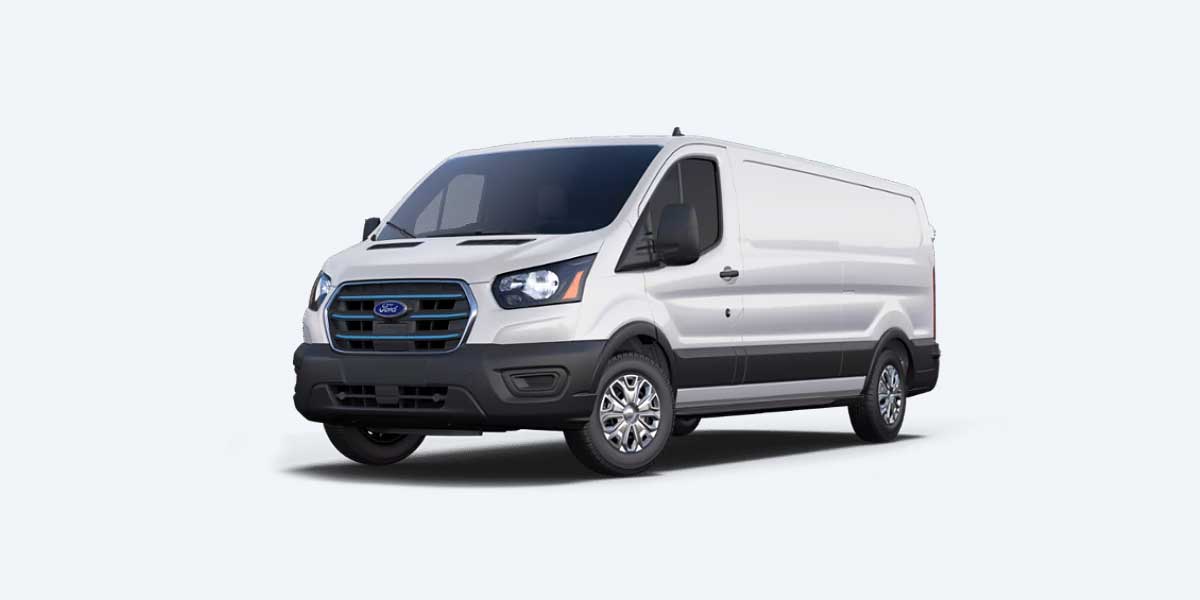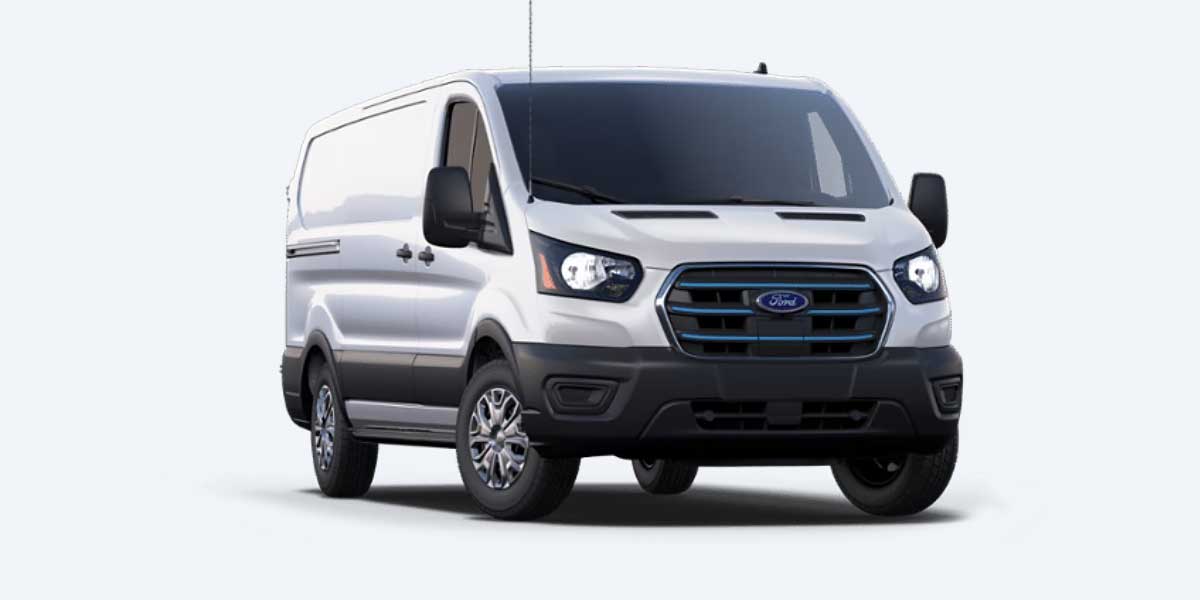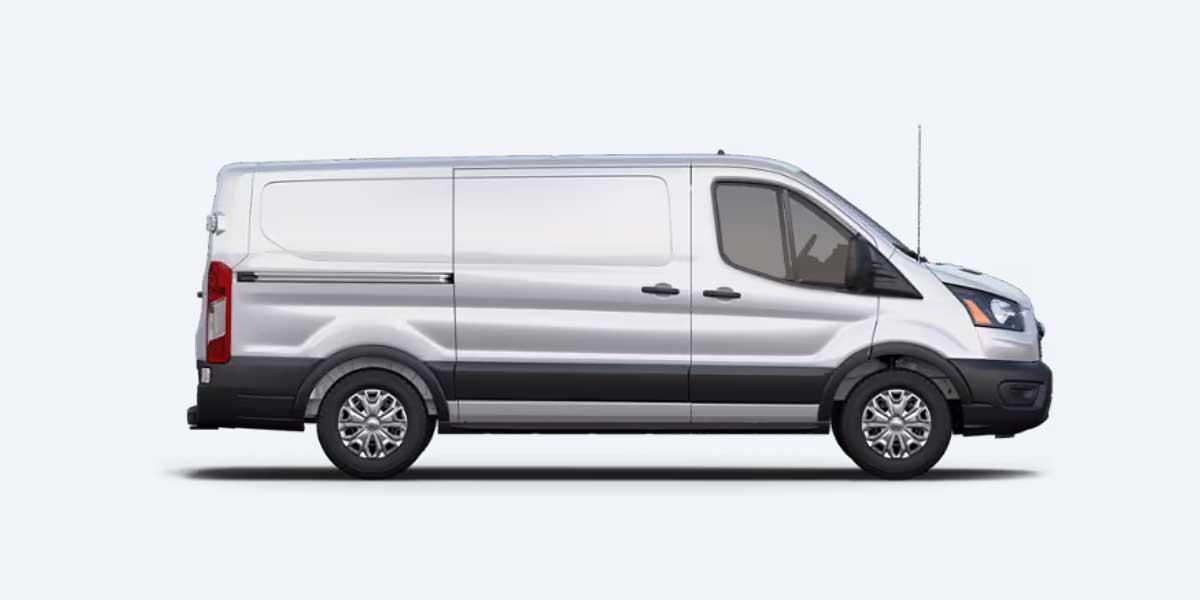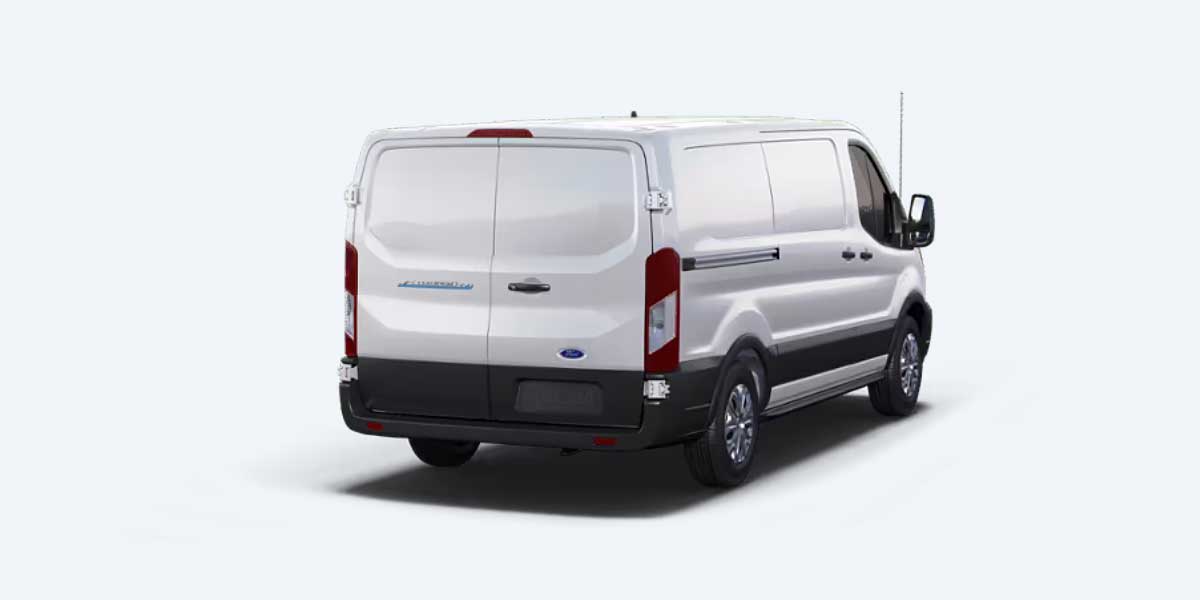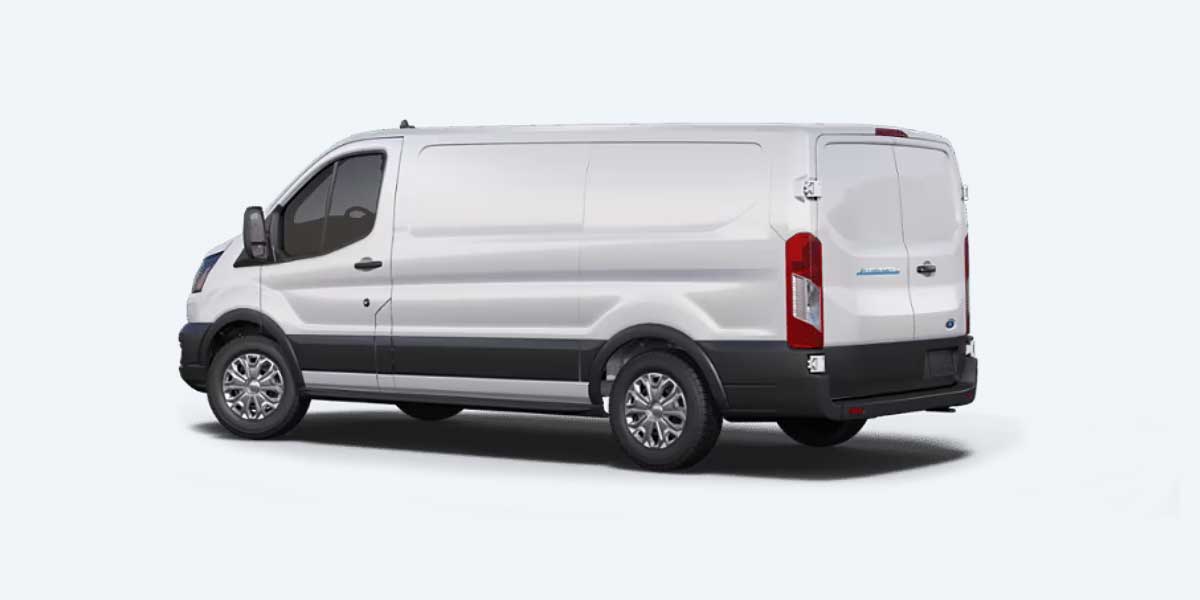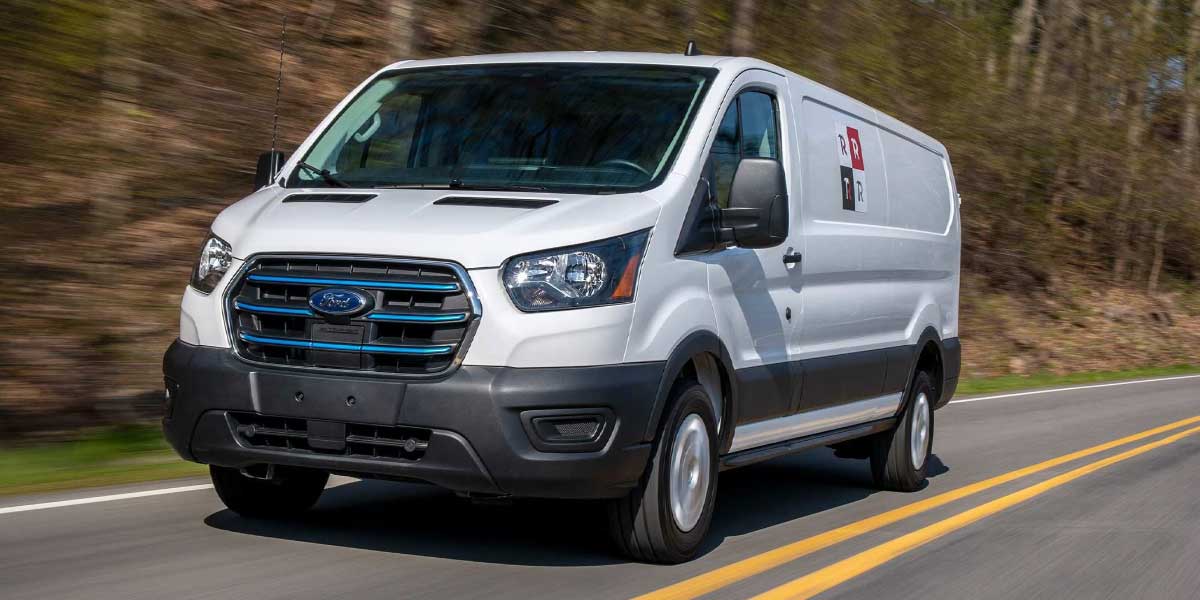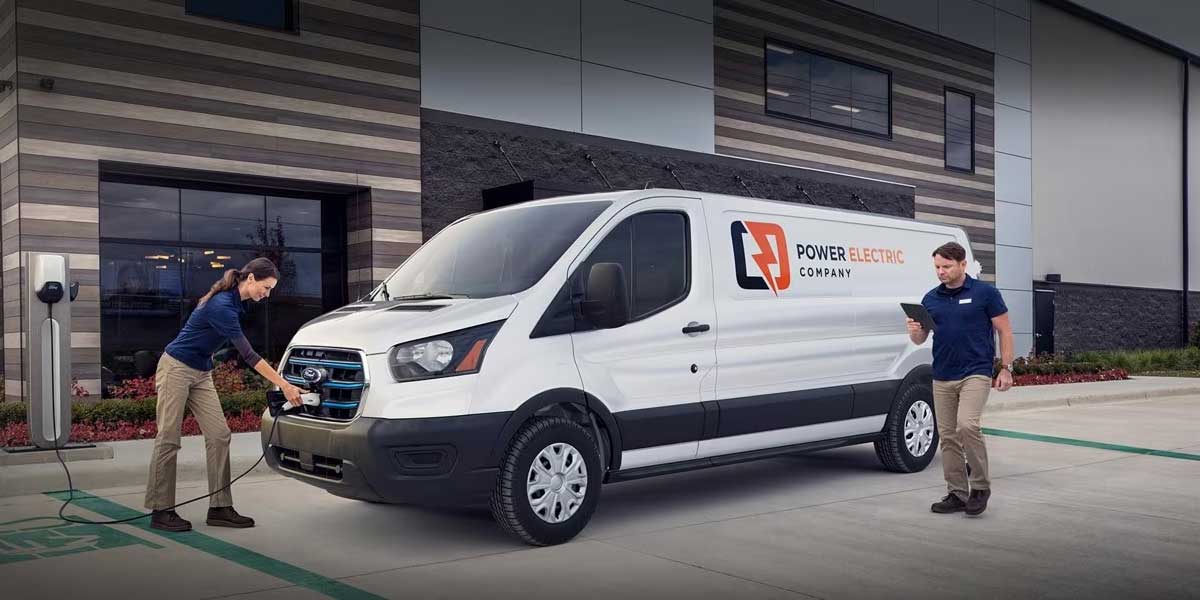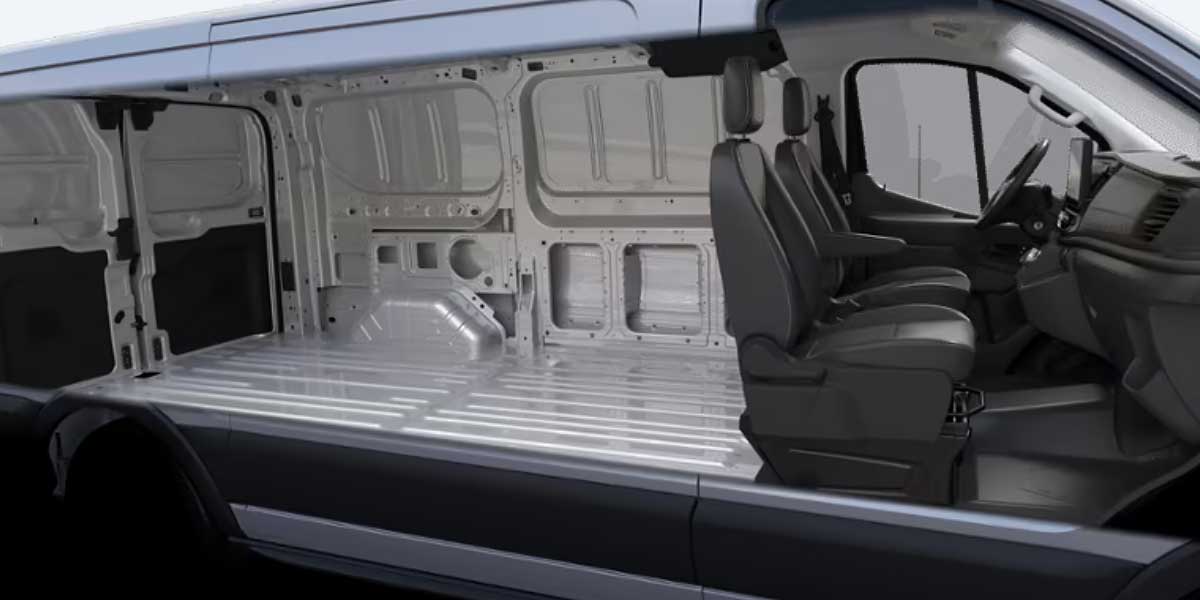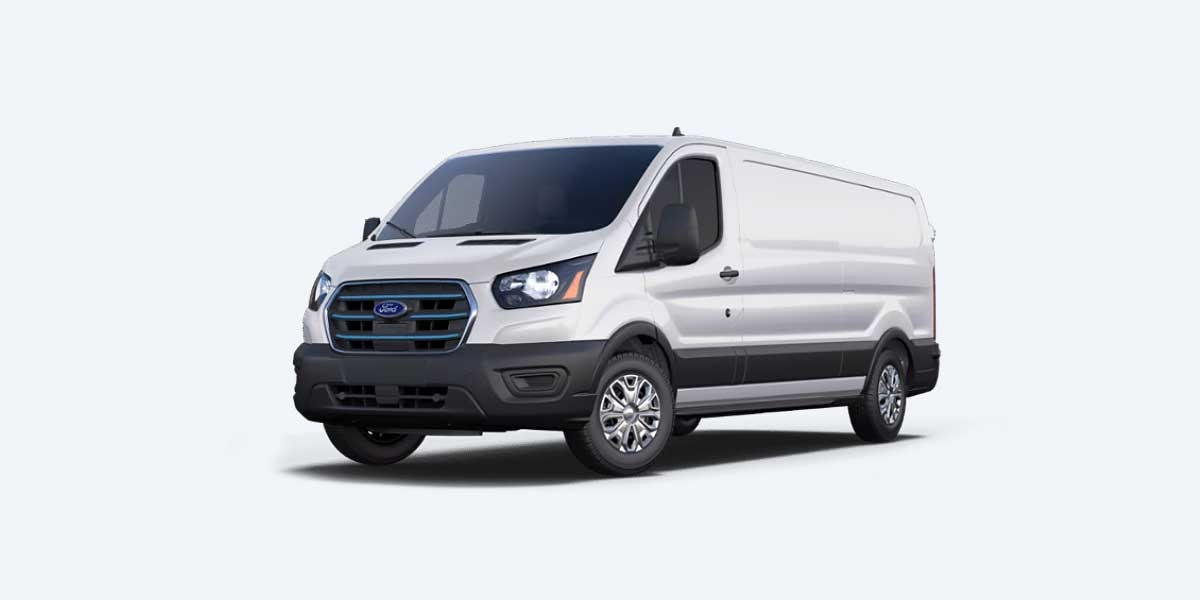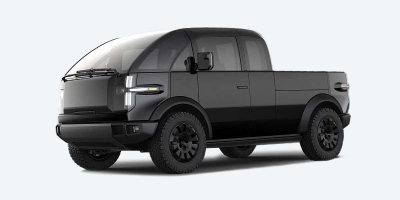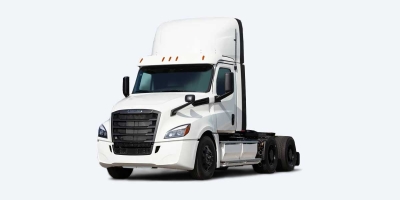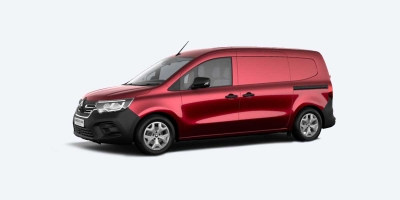Ford E-Transit Cargo Van
User Rating: 4.50 / 5
![]()
![]()
![]()
![]()
![]()
Ford E-Transit Cargo Van Review ⚡
What is Ford E-Transit Cargo Van?
Ford E-Transit Cargo Van offers a practical electric solution tailored for businesses. With a sizable cargo space, robust electric motor, and zero emissions, it combines efficiency, power, and eco-consciousness for urban deliveries and daily operations.
Ford E-Transit Cargo Van price:
US$ 49995 *
| manufactured in | United Kingdom |
| sales start | 2023 |
| range (km) | 203 |
| battery (kWh) | 68 |
| cargo capacity (kg) | 2600 |
* Minimum price set by the manufacturer, excluding taxes and additional options
Revolutionizing Commercial Transport: The Ford E-Transit Enlightened
In the ever-evolving realm of business mobility where precision and economy dance in unison, the Ford E-Transit steps forward as a beacon of progress. This pioneering electric van aims to drive enterprises into unparalleled realms of efficiency and ecological responsibility. Let us delve into the multifaceted features, advantages, and stellar attributes of the Ford E-Transit, showcasing its terms as the ultimate partner for industry elites.
Introducing the Ford E-Transit
An electrifying addition to the commercial vehicle landscape, the Ford E-Transit revolutionizes what it means to be eco-friendly in logistics. We’ll break down the key features that make it a model of sustainability and operational excellence.
Fuelled by Its Electric Core
At the heart of the E-Transit's charm is its electric powertrain. Whisper-quiet and zero-emissions, it glides effortlessly through bustling streets and rural roads, offering businesses a green footprint coupled with reduced operational costs.
Impressive Range
A paragon of reliability, the E-Transit's battery ensures lengthy journeys on a single charge. It’s the ideal companion for the delivery expert or traveling artisan, slashing downtime and maximizing distance.
Versatile Configurations
Flexibility is its strong suit; the E-Transit offers a spectrum of configurations. Whether used as a spacious cargo van or a comfortable passenger van, it meets the diverse demands of various business operations.
Financial Efficiency
Shifting to electric power isn’t just about going green—it’s about financial acumen. By cutting down on fuel and maintenance costs, the E-Transit positions itself as a cost-effective option, inviting businesses to a future of frugality.
The Benefits Unveiled
Reduced Operational Costs
With its electric engine, the Ford E-Transit trims down traditional vehicle expenses. Echoing fiscal responsibility, it promises lower costs for fuel, maintenance, and even offers tax incentives for eco-friendly enterprises.
Tranquil Operation
The whisper-quiet operation creates a tranquil environment, reducing driver fatigue and enhancing passenger comfort. Coupled with its spacious interior, the E-Transit is a sanctuary of peace and ample space.
Connectivity and Control
Leading the charge in technology, Ford’s suite of connectivity features, including FordPass Connect, provides businesses with tools for vehicle management, telematics, and remote functionalities, weaving a network of information and control.
Unyielding Safety
In the unpredictable arena of the road, the E-Transit shields its occupants with advanced safety features. From Pre-Collision Assist with Automatic Emergency Braking to a host of vigilant sensors, it stands as a guardian against the unexpected.
The Ford E-Transit emerges not just as a vehicle but as a strategic pivot for business advancement. With its blend of electric efficiency, versatile configurations, economic virtue, and technological prowess, it invites businesses to a horizon of growth and responsible operation.
Let the Ford E-Transit be the catalyst that drives your business operations into new realms of success and sustainability. Electrify your fleet with the Ford E-Transit and witness the future of commercial transportation come to life.
F.A.Q. about Ford E-Transit Cargo Van:
What is cargo capacity?
The cargo capacity of the Ford E-Transit Cargo Van is approximately 487.3 cubic feet (13.8 cubic meters).
What is the range of an electric vehicle on a single charge?
The Ford E-Transit Cargo Van has a range of about 126 miles (203 kilometers) on a single charge.
How long does it take to fully charge an electric vehicle?
It takes approximately 8 hours to fully charge the Ford E-Transit Cargo Van using a standard AC charging station.
Are electric vehicles more expensive than gasoline cars?
The Ford E-Transit Cargo Van is priced around $49,995. This may be higher than some gasoline vans, but the operational savings can offset the initial cost.
What are the maintenance requirements for electric vehicles?
Electric vehicles like the Ford E-Transit Cargo Van require less maintenance compared to gasoline vehicles, primarily because they have fewer moving parts.
What is the price of a car?
The Ford E-Transit Cargo Van is priced at $49,995, which converts to approximately €46,265 or £40,850 using current exchange rates.
What is battery capacity?
The battery capacity of the Ford E-Transit Cargo Van is 67 kWh.
What is top speed?
The Ford E-Transit Cargo Van has a top speed of around 85 mph (137 km/h).
What is total power?
The total power output of the Ford E-Transit Cargo Van is 198 kW, which is approximately 266 horsepower.
What is total torque?
The total torque produced by the Ford E-Transit Cargo Van is 317 lb-ft (430 Nm).
Comparison of Ford E-Transit Cargo Van:
Range
When it comes to the distance covered between coffees, the Ford E-Transit Cargo Van rolls out a respectable 126 miles (203 km) on a full charge. Not exactly cross-continental but enough for a day’s urban hustle. The Mercedes-Benz eSprinter strides ahead with 150 kilometers (93 miles). Meanwhile, the Nissan e-NV200 hangs in there with 124 miles (200 km), almost mirroring the Ford. The VOLKSWAGEN e-Crafter swings in with around 107 miles (172 km). It’s a truckload more than jogging, but each step counts for the urban green mile.
Power
Time to ignite the electric ponies. Under the hood, or should I say beneath the chassis, the Ford E-Transit Cargo Van churns out a muscular 266 horsepower (198 kW). A beast in this fleet of workhorses. The Mercedes-Benz eSprinter dispatches 84 horsepower (62 kW), hardly an adrenaline rush but it gets the job done smoothly. Revving up, the Nissan e-NV200 sails at a modest 109 horsepower (80 kW), a solid performer for tight city squeezes. Lastly, the VOLKSWAGEN e-Crafter delivers 134 horsepower (100 kW), showing it’s no slacker in the power game.
Charging Time
Of course, power’s one thing; how long you’re hugging the socket is another. The Ford E-Transit Cargo Van boasts a rapid charging capability — 15% to 80% in about 34 minutes with a 115 kW DC fast charger. A cup of coffee and you’re good to go. The Mercedes-Benz eSprinter takes about 30 minutes for an 80% charge with a 40 kW charger. Handy but still leaning on patience. The Nissan e-NV200 takes a bit longer at around 40-60 minutes for an 80% charge with a 50 kW charger, giving you more time to tweet. The Volkswagen e-Crafter shares a similar fate, clocking around 45 minutes for a similar level of charge.
Price
And now, let’s open our wallets. The Ford E-Transit Cargo Van lands at a tempting $49,995 (£37,410, €43,150). Meanwhile, the Mercedes-Benz eSprinter floats around $57,000 (£42,690, €49,200). The Nissan e-NV200 parks itself at approximately $39,450 (£29,550, €34,060). The Volkswagen e-Crafter hovers at $61,000 (£45,690, €52,680). Almost rivaling the interest rates of a small mortgage, but hey, going green doesnt come cheap.
Load Capacity
For those lugging heavy loads, the Ford E-Transit Cargo Van offers a hearty payload capacity of up to 3,800 lbs (1,724 kg). The Mercedes-Benz eSprinter provides a sturdy 2,696 lbs (1,222 kg). The Nissan e-NV200 chips in with 2,190 lbs (994 kg). Finally, the Volkswagen e-Crafter delivers up to 2,645 lbs (1,200 kg). Here, the Ford stakes its claim as the sumo wrestler in the group.
Submit a request to add information about your company to the MOTORWATT EV Database

